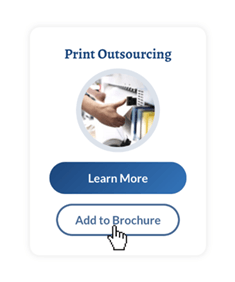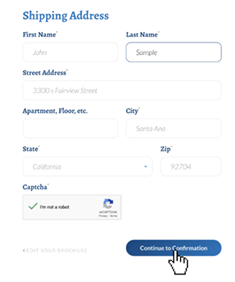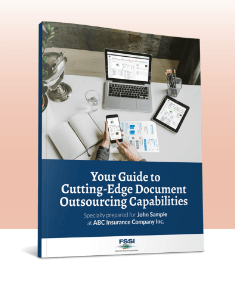Branding, Customer Experience and Engagement, Marketing Strategies, Technology and Mobile
Omnichannel vs. Multichannel Marketing: Differences and Use Cases

What is the Difference Between Omnichannel and Multichannel Marketing?
In this age of social media and technological advancements, marketing professionals have a plethora of channels at their disposal to reach customers. With so many options available, it’s important to determine whether an omnichannel or multichannel approach is the best fit for your marketing strategy. But fear not! We’re here to guide you through this epic marketing showdown with a lighthearted touch.
You can present either a unified message with one specific, targeted approach across multiple channels or a diverse, but well-orchestrated set of perspectives that deliver multiple messages across multiple channels. Modern marketing enables you to truly define the customer experience.
Understanding Multichannel and Omnichannel Marketing
As customers engage with your business or brand through various devices, it’s essential to leverage these communication avenues to capture and retain their attention. The question is: should you employ a multichannel approach or an omnichannel approach?
Multichannel marketing involves using multiple channels to deliver different messages, with each channel functioning as its marketing funnel. It offers a non-integrated experience, with marketing efforts tailored to each specific channel. On the other hand, omnichannel marketing delivers a consistent message across multiple channels, creating a unified customer journey. It provides an integrated experience, with a cohesive and well-coordinated plan across various avenues.
Both approaches utilize the vast array of marketing channels available today, but which one is more effective for your business? Let’s dive deeper into the reasons why both strategies are valuable for improving your marketing efforts.
Finding the Common Ground
In today’s landscape, it’s crucial to reach customers through targeted messages across multiple channels. The days of relying on a single touchpoint are long gone. The beauty of multichannel and omnichannel marketing lies in their ability to engage customers through diverse avenues. Whether it’s an in-app experience, social media interaction, or website visit, each channel plays a vital role in capturing your audience’s attention.
Both strategies aim to optimize the customer experience by leveraging valuable insights from customer data. By knowing where and how to reach your target audience, you can implement precise and targeted outreach. The bottom line is clear: with multichannel and omnichannel marketing, you can effectively target users through multiple channels, enhancing brand awareness and delivering your message strategically.

The Showdown: Omnichannel vs. Multichannel Marketing
While both approaches have their merits, they differ in terms of message delivery and the overall customer experience. Let’s take a closer look at the defining characteristics that set them apart.
Multichannel Marketing: Unique, Independent, Channel-Focused
Multichannel marketing spans various channels such as social media, apps, websites, and paid advertising. However, each channel operates independently, featuring its unique outreach strategy. Instead of a unified approach, each channel delivers a distinct message. While this channel-focused approach can be effective, it may inadvertently lead to inconsistent messaging as outreach efforts overlap across different channels.
Omnichannel Strategy: Cohesive, Connected, Integrated
Similar to multichannel marketing, the omnichannel approach leverages multiple channels. The difference lies in the message delivered. With an omnichannel strategy, you create a cohesive and connected experience that personalizes the message across different devices. Maintaining consistency and integration across all channels provides customers with a seamless consumer journey. Rather than bombarding them with separate messages on each device, the omnichannel strategy unifies your customer base while still catering to new audiences and prospects.
…And the Winner Is: Omnichannel Marketing
With most customers navigating the Internet across multiple devices, there is an increasing amount of ways that they can connect with your business or brand. Utilizing these many forms of communication is vital to gaining and maintaining an audience in any market. Should your outreach include an independent approach like multichannel marketing or an integrated approach like omnichannel marketing?
While multichannel marketing may seem enticing, customers now crave a seamless experience that aligns with their preferences. Savvy customers appreciate cohesiveness and consistency, which multichannel strategies often lack. Enter omnichannel marketing—a strategy that optimizes the entire customer experience. By pushing messages through multiple channels in a thoughtful and meaningful way, you create a unified conversation.
The Key Point of Difference Between Multichannel and Omnichannel Marketing
- Utilizing a multichannel approach, you blend multiple channels to deliver multiple messages, with each channel acting as its own marketing funnel. It provides a non-integrated experience, separate from other channels, with marketing efforts unique to that channel.
- An omnichannel approach delivers the same message across multiple channels for a consistent and unified customer journey. It provides an integrated experience, with a multi-pronged game plan that includes many cohesive avenues.
Using the marketing channels presented by the many modern devices and avenues of information is an absolute necessity, but which approach is most effective for your business or brand? First, let’s discuss why they’re both effective ways to improve marketing.
Create Your Winning Omnichannel Marketing Strategy Today!
By harnessing the information and insights gathered from every avenue, omnichannel marketing ensures a consistent and preferred experience across all channels. With a unified message that resonates with your audience, the omnichannel approach delivers the optimal customer experience, aligning seamlessly with your business goals.
Ready to embark on your omnichannel marketing journey? Here are some steps to help you get started:
- Know Your Audience: Dive deep into customer data to understand their preferences, behaviors, and communication habits. This knowledge will empower you to tailor your messages and select the most effective channels for reaching your target audience.
- Integrate Your Channels: Break down the silos and connect your channels to create a cohesive and synchronized experience. Whether it’s social media, email marketing, website interactions, or offline touchpoints, ensure that your messaging and branding remain consistent across all platforms.
- Personalize the Experience: Leverage customer data to deliver personalized content and offers. Use automation tools and segmentation strategies to tailor messages based on customer interests, previous purchases, or browsing behavior. This level of personalization enhances engagement and boosts conversions.
- Seamless Transition: Make it easy for customers to move across channels without any disruptions. For example, if a customer starts browsing products on your website, ensure they can seamlessly continue their journey on a mobile app or receive personalized recommendations via email.
- Measure, Analyze, and Optimize: Set up tracking mechanisms to measure the effectiveness of your omnichannel campaigns. Analyze the data to gain insights into customer behavior, channel performance, and conversion rates. Continuously optimize your strategies based on these insights to improve results over time.
Remember, the world of marketing is ever-evolving, and staying ahead requires adaptation and innovation. Keep an eye on emerging channels and technologies that may enhance your omnichannel approach, such as voice assistants, augmented reality, or chatbots.
So, marketing professionals, embrace the power of omnichannel marketing. Deliver a seamless, consistent, and personalized customer experience that leaves a lasting impression. Your audience will appreciate the thoughtfulness, and your brand will thrive in this dynamic landscape.
To embark on your omnichannel marketing adventure and craft a strategy that sets you apart, reach out to us at 714.436.3300. Let’s create marketing magic together!
Remember, in the epic battle of omnichannel vs. multichannel marketing, choose the approach that wins hearts, drives engagement, and propels your business to new heights. Happy marketing!

Sources:
https://www.shopify.com/enterprise/omni-channel-vs-multi-channel https://www.omnisend.com/blog/omnichannel-vs-multichannel/ https://business.adobe.com/blog/basics/omnichannel-vs-multichannel-marketing



